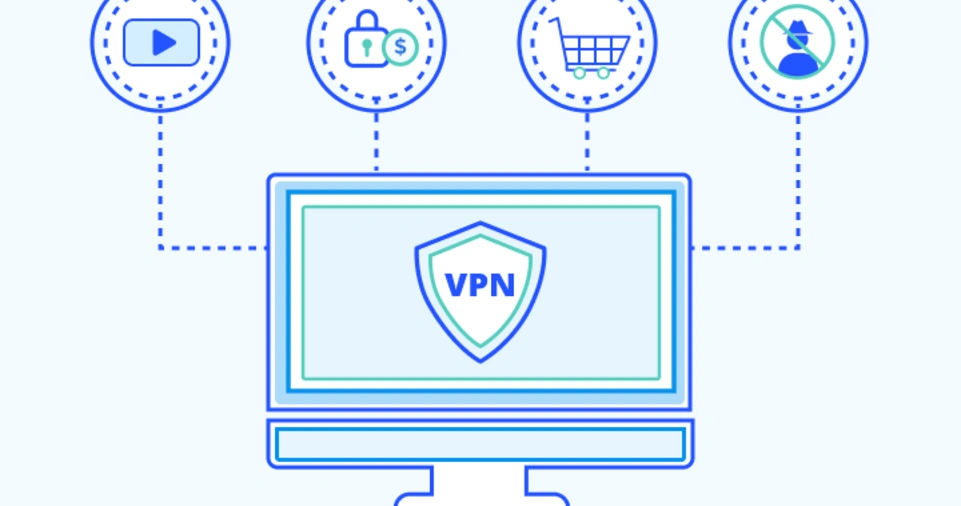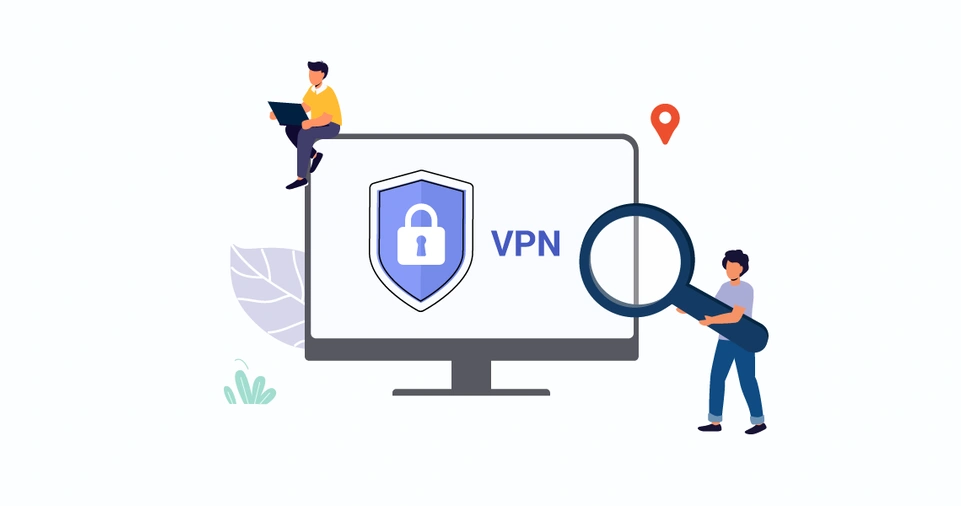In today’s interconnected world, privacy and security on the internet have become critical concerns.
Whether you’re browsing social media, shopping online, or accessing banking services, your data is always at risk of being intercepted.
Hackers, cybercriminals, and even internet service providers (ISPs) can track your online activities and compromise your personal information.
This is where Virtual Private Networks come in.
A VPN creates a secure, encrypted tunnel between your device and the internet, ensuring that your online activities remain private.
By masking your IP address and routing your traffic through remote servers, a VPN makes it difficult for third parties to monitor your actions or steal sensitive data.
Additionally, VPNs allow you to bypass geographical restrictions and access content that may otherwise be unavailable in your region.
In this article, we’ll explore everything you need to know about using VPNs for secure browsing, from selecting the right service to maintaining your privacy while online.
What is a VPN and How Does It Work?
What is a Virtual Private Network?
A Virtual Private Networks is a technology that encrypts your internet connection and routes it through a secure server, thereby hiding your real IP address.
This means your online activity is protected from prying eyes, and your internet traffic becomes virtually unreadable to hackers and other malicious entities.
Virtual Private Networks are typically used to improve privacy and security while browsing the web.
When you connect to a Virtual Private Networks, it changes your IP address, which is a unique identifier for your device on the internet.
By masking your real IP address, a Virtual Private Networks prevents websites, advertisers, and other parties from tracking your online behavior.
Additionally, a VPN encrypts your data, which protects sensitive information like passwords, financial details, and personal communications.
How Does a VPN Work?
A VPN works by creating a secure, encrypted connection between your device and the Virtual Private Networks server.
This encrypted connection is known as a “tunnel,” which prevents third parties from monitoring or accessing your online activities.
Here’s a simple breakdown of how it works:
You connect to a Virtual Private Networks server:
When you launch a VPN app, it connects your device to one of the service provider’s servers.
Your data is encrypted:
All your online traffic, including emails, browsing history, and search queries, is encrypted using strong encryption algorithms like AES-256.
The Virtual Private Networks server acts as a middleman:
Your traffic is then routed through the server, and the server forwards it to the internet.
This server masks your IP address and makes it appear as though your traffic is originating from that server’s location, not your own.
The data is decrypted on the server side:
Once the data reaches its destination, it is decrypted by the server, allowing you to access websites and online content securely.
This process effectively hides your browsing habits and protects your data from being exposed on public or unsecured networks, such as those found in cafes or airports.
Benefits of Using a Virtual Private Networks for Secure Browsing

Enhanced Privacy and Anonymity
The primary benefit of using a VPN is improved privacy.
By masking your IP address, a Virtual Private Networks ensures that your identity remains anonymous while browsing the web.
Websites, advertisers, and even your ISP are unable to track your online activities, giving you more control over your digital footprint.
Whether you’re browsing social media, streaming content, or making purchases, a Virtual Private Networks helps keep your identity and actions hidden from prying eyes.
Data Protection on Public Wi-Fi
Public Wi-Fi networks are often unsecured, making them a prime target for cybercriminals looking to intercept sensitive data.
When you use public Wi-Fi, such as in airports, cafes, or hotels, your personal information is at risk.
A Virtual Private Networks encrypts your internet connection, making it nearly impossible for hackers to intercept your data.
This ensures that your passwords, bank details, and other sensitive information are protected while using unsecured networks.
Bypass Geographical Restrictions
VPNs allow you to bypass regional content restrictions by changing your IP address to appear as if you are located in a different country.
This can be especially useful for accessing content that is blocked or unavailable in your region, such as streaming services like Netflix, Hulu, or BBC iPlayer.
With a Virtual Private Networks, you can access your favorite shows and movies regardless of your location, effectively “unblocking” content.
Protection Against Cyberattacks
Cyberattacks such as man-in-the-middle attacks and phishing are becoming more common.
These attacks often target users who are browsing unsecured networks or who have inadequate security measures in place.
A Virtual Private Networks adds an extra layer of defense by encrypting your traffic and protecting you from such threats.
It also protects against DNS leaks, which can expose your browsing activities even when you’re using a Virtual Private Networks.
ALSO READ: How to Optimize Your Computer for Gaming Performance
Choosing the Right VPN Service
Encryption Strength
The most important feature of a Virtual Private Networks is the level of encryption it provides. Strong encryption ensures that your data is safe from hackers and unauthorized access.
The industry-standard encryption method used by most reliable Virtual Private Networks is AES-256, which is considered nearly impossible to crack.
When selecting a Virtual Private Networks service, ensure that it uses AES-256 encryption to guarantee your privacy.
No-Logs Policy
A VPN service with a no-logs policy means that it does not track or store your online activities.
This is important because even though a Virtual Private Networks protects your browsing habits from third parties, some Virtual Private Networks providers may still collect and log your data.
To ensure maximum privacy, choose a Virtual Private Networks provider that adheres to a strict no-logs policy and has a transparent privacy policy.
Server Locations
The number and location of servers are crucial factors in determining aVirtual Private Networks performance.
A Virtual Private Networks with servers in multiple countries allows you to switch locations and bypass geographical restrictions more easily.
More servers also mean less congestion, leading to faster speeds and better performance.
Look for a VPN provider with a broad network of servers, especially if you want to access content from specific countries.
Speed and Performance
Virtual Private Networks can sometimes slow down your internet connection because your data is being encrypted and rerouted through remote servers.
However, a high-quality Virtual Private Networks service minimizes this slowdown by providing fast, reliable connections.
Look for reviews or conduct speed tests to determine whether the Virtual Private Networks you’re considering offers the best balance of speed and security.
Price and Value
While free Virtual Private Networks are available, they often come with limitations such as slower speeds, fewer servers, and weaker encryption.
Many free VPN services also sell your data to advertisers.
Paid Virtual Private Networks are generally more secure, offer better performance, and provide customer support.
It’s worth investing in a reputable paid Virtual Private Networks service for better security and peace of mind.
How to Set Up and Use a Virtual Private Networks

Download and Install the Virtual Private Networks App
Once you’ve selected a VPN provider, visit their website or app store to download the VPN software.
Most Virtual Private Networks offer apps for various platforms, including Windows, macOS, Android, iOS, and sometimes even routers.
After downloading, install the app on your device and follow the setup instructions.
Log in to the VPN App
Open the VPN app and log in using your credentials.
If you’re using a paid Virtual Private Networks service, you may need to enter a subscription key or activate your account before logging in.
Choose a Server Location
After logging in, the app will display a list of server locations.
You can either select a server based on your geographic preference or let the app choose the best server automatically.
Most VPN apps will also show you the current server load, so you can choose a less congested server for optimal speed.
Connect to the VPN
Click the “Connect” button to initiate the VPN connection. The app will encrypt your data and route it through the selected server.
You can verify that your VPN is active by checking your IP address or visiting a website like whatismyip.com to ensure it shows the VPN server’s location, not your own.
Browse Securely
With the VPN active, you can browse the internet securely and privately.
Enjoy anonymous browsing, access geo-blocked content, and protect your data from cybercriminals.
Remember to disconnect from the VPN when you’re done for the best performance.
Best Practices for Secure Browsing with a VPN
Use HTTPS Websites
Even with a VPN, it’s important to ensure that the websites you visit are encrypted.
Always look for “https” at the beginning of a URL. The “s” stands for secure, indicating that the site uses encryption to protect your data.
Enable the VPN Kill Switch
Most reputable VPN services offer a kill switch feature.
This feature disconnects your internet connection if the VPN connection drops, ensuring that your real IP address is never exposed.
Always enable the kill switch for an added layer of security.
Avoid Logging Into Sensitive Accounts on Public Wi-Fi
Even with a VPN, public Wi-Fi networks remain risky. It’s best to avoid logging into sensitive accounts, such as banking or email, when connected to public Wi-Fi.
If you must, ensure the VPN is active and consider using multi-factor authentication for extra security.
Regularly Update Your VPN Software
VPN providers often release updates that improve security and performance.
Regularly updating your VPN app ensures you’re protected with the latest security patches.
Conclusion
Using a VPN is one of the most effective ways to ensure secure browsing in an increasingly connected world.
By choosing a reliable VPN service, setting it up correctly, and following best practices, you can protect your privacy, safeguard sensitive data, and bypass geographical restrictions with ease.
With online threats constantly evolving, incorporating a VPN into your browsing habits is an essential step towards maintaining digital security and privacy.

